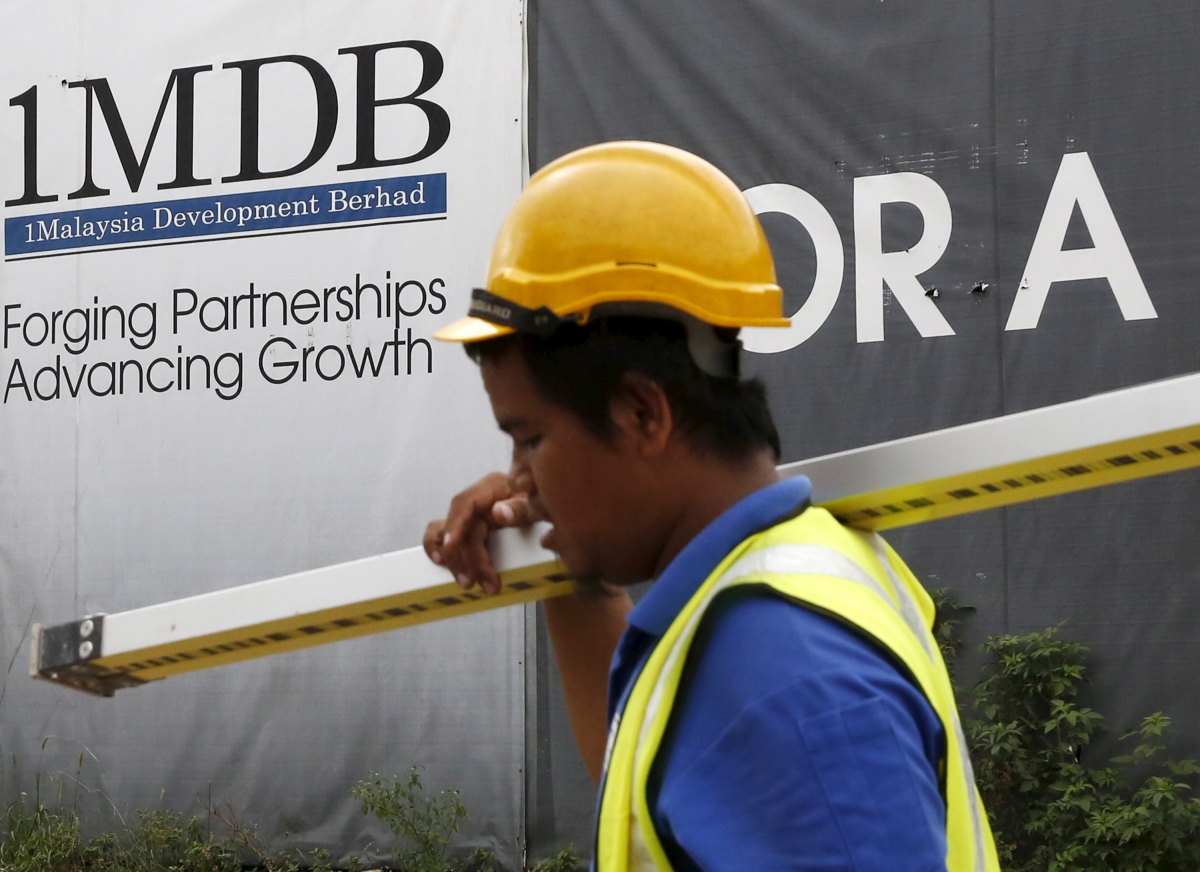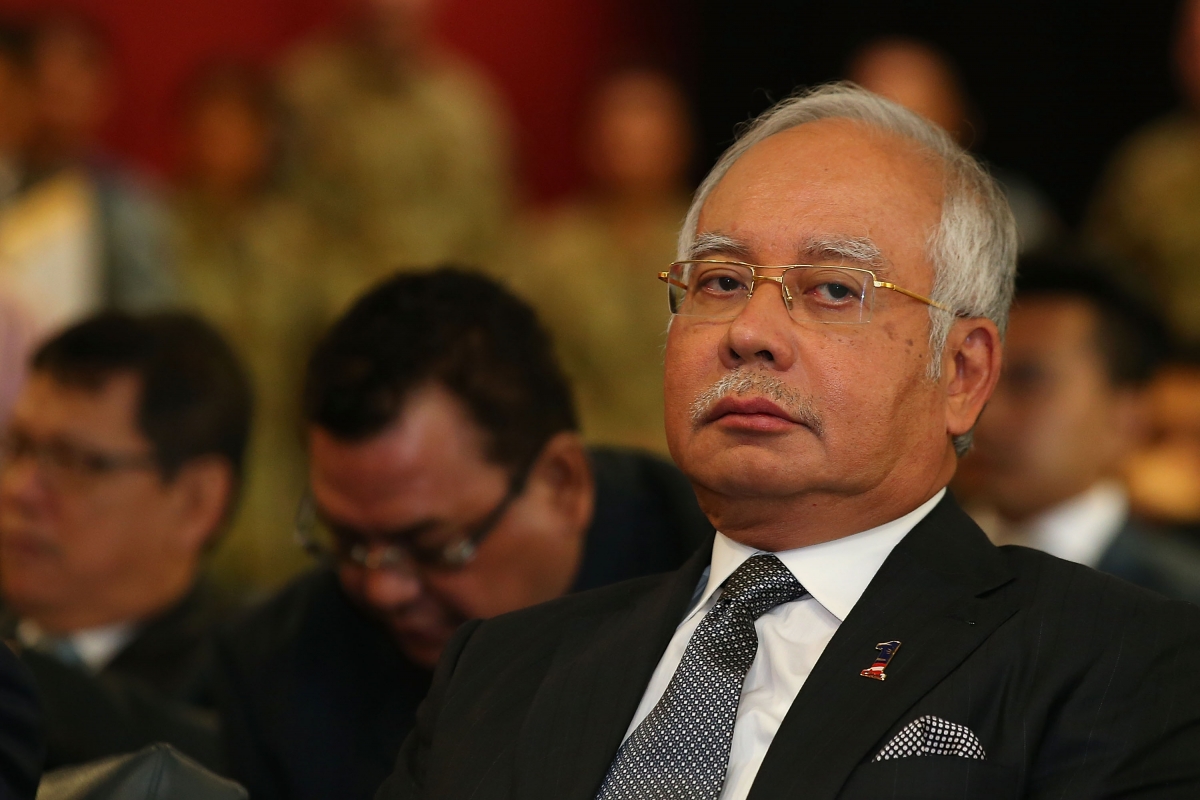
1Malaysia Development Berhad (1MDB) billboard at the Tun Razak Exchange development, a project funded by the state fund.
REUTERS/Olivia Harris
Lawmaker Tony Pua who also sits on the multi-party
parliamentary Public Accounts Committee, noted that the government's
debt-asset swap arrangement with IPIC indicated that the Ministry of
Finance would indemnify IPIC of all its obligations including advances
and interest payments on behalf of 1MDB. "In the inter-guarantor
agreement signed between 1MDB and IPIC dated May 21, 2012, 1MDB has to
get the Minister of Finance (Inc) to settle all principal and related
costs if 1MDB fails to discharge its obligation as a guarantor," Pua
added.
IPIC
may refuse to pay the $50.3m interest and this will eventually force
IPIC to repay the $1.75bn (£1.20bn, €1.55) of bonds it guaranteed on
behalf of 1MDB. "However, ultimately, IPIC will make the claim on the
Malaysian ministry of finance based on the inter-guarantor agreement,"
Pua said.
And the big question
is - Will Malaysia's Prime Minister Najib Razak refuse to honour 1MDB's
agreement with IPIC, the sovereign wealth fund of the Abu Dhabi
government? Pua is demanding that Najib explain how the government
intends to resolve the situation.
"The minister of
finance cannot continue to remain silent on this matter as this is the
single largest default by any government subsidiary ever in the history
of Malaysia," he said. A full and satisfactory explanation on "the
financial disaster taking place before our eyes and outline the steps
which will be taken to remedy the situation," he said.
Ironically, in addition to being the prime minister,
Najib also holds the Finance Ministry portfolio. He is also the chair
of the advisory committee to 1MDB. FinanceAsia named Najib as the worst finance minister in 2016 in Asia Pacific's largest economies.
1MDB debts as good as government bonds
His comments were
backed by others. A fund manager who is currently holding some 1MDB
debt, said: "The [RM5bn] sukuk is government-guaranteed. 1MDB's name may
be on the bonds but the way it is wrapped, it is as good as MGS
[Malaysian Government Securities]. There is no reason for us to disturb
the bonds." As a sukuk holder, he has decided not to call for an
accelerated principal payment despite the default.

Malaysian Prime Minister Najib Razak has been called on to step down by members of his own party following the 1MBD scandal
Getty
The
Edge Markets noted that although 1MDB's RM2.3bn cash reserves is "ample
liquidity" to cover interest payments, the state fund does not have the
liquidity to meet a claim for a principal payment shoudl the Langat
bondholders choose to trigger an event of default.
In practice however,
bondholders generally "think twice" about seeking accelerated payment
when the company is unable to pay in full as it may result in creditors
eventually failing to get all of their money back, The Edge reported,
quoting a source.
1MDB on 26 April confirmed that it had defaulted on $50.3m interest payment due
on the $1.75bn bonds issued by its subsidiary 1MDB Energy (Langant)
Ltd. Cross defaults on some of its other debts have also been triggered,
although the state fund insists that it is "limited".
Another $1.75bn bond
issued by 1MDB's wholly-owned unit 1MDB Energy Ltd due in 2022 and also
co-guaranteed by IPIC has not been affected by the default.

Post a Comment